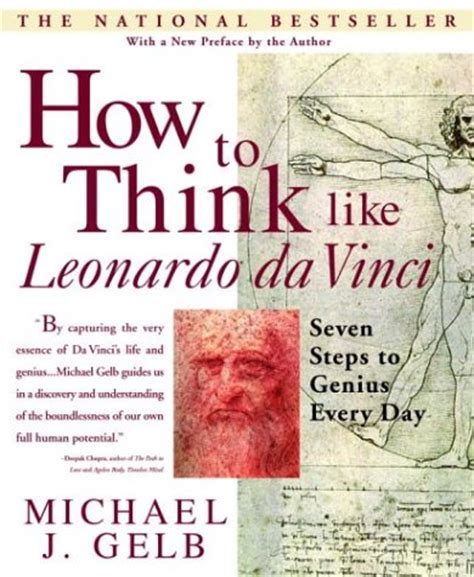You’ll pardon me, I hope, for my delay in coming to the post. I’ve been writing questions. Page after page, since one page holds only 20 questions, and that’s only if the question is short. If it’s longer, it takes two lines and that’s one less question I can fit on the page. So maybe it’s an average of 15 per page, not 20, making it a lot of pages before I get all the way to 100 questions.
I’ve been writing questions because, honestly, I’m curious. Not exactly about the things I’m writing questions about. That’s a little different. I’m writing questions I may or may not be fully curious about, because I need questions to fill the pages, an average 15 per page, in order to get to that 100. And more than I’m curious about any one question of 100, I’m curious as to what happens when I get 100 questions.
I got them, by the way. All 100. It turned out to be around six pages. And writing 100 questions didn’t give me very many answers. I should say, it gave me no answers. Just questions. 100, to be exact.
The genius — Leonardo — could be blamed for all this, I suppose. But not the way you might think. He didn’t ask me to write 100 questions. (He is no longer living, if you must know.) Michael Gelb, on the other hand, could be held responsible, if affixing blame seemed important to a person. This could be Question Number 101, in fact, and could have saved me thinking of another question, had I thought of it earlier: Is it important to deem someone responsible? I did not think of it earlier, and now I am here with an odd number of questions. So no, I can’t really blame Leonardo, but in such cases, Michael Gelb will do. Mr. Gelb did ask me to write 100 questions. Because, he said, it will help me think more like Leonardo. That’s the story, anyway, that he writes about in How to Think Like Leonardo da Vinci. Compared to da Vinci, Gelb would probably say (and I might be putting words in his mouth so you might need to ask him), 100 questions is nothing. Da Vinci could write 100 questions before breakfast. Which he probably ate not long before he went to bed because da Vinci doesn’t strike me as the kind of guy who spent much time sleeping.
He spent way more time dreaming up questions.
Here’s the thing about my 100 questions. They seemed to focus a bit excessively on death and taxes. Well, not actually the taxes part. But it sounded better than death and finances. And there was at least one question thrown in about how tall I really had to be to reach up and touch clouds. I’ve been working on that question since I was six. I don’t have the answer yet, but I do know it’s at least 6 foot 2. But yes, my six or so pages of questions focused curiously on death. I think it’s just a stage of life.
Why did Gelb demand so many questions? This is also a good question. So make that 102. And he didn’t really demand it. I should be clear on that. He suggested it, as an activity designed to boost curiosity. Curiosity, or Curiosità, is a quality — one of seven — that Gelb identifies as bedrock to beginning to think like da Vinci. And at the core of Curiosità is the question. Or 100, more or less.
Leonardo kept a notebook. Several, probably. At one time, he wrote of his notebooks that “This is to be a collection without order, taken from many papers, which I have copied here, hoping afterwards to arrange them according to the subjects of which they treat; and I believe that I shall have to repeat the same thing several times; for which, O reader, blame me not…”
There we go again, affixing blame. The problem, sometimes, is that when we ask 100 questions, we don’t answer many of them. So we still haven’t decided if this blame question is one we really care about. But Gelb, and apparently da Vinci, believe that the point isn’t to answer the question; it’s to ask it. It’s no wonder, really, that they get blamed for a lot of stuff. The notebook, which Gelb recommends we carry around like Leonardo, is a great place to record these questions that we ask and don’t necessarily answer.
By asking a lot of questions all at one time, the theory goes, certain themes will emerge. (I hope for you, the theme is not tax-related.) And then one can select from amongst those emergent themes, and take the exercise a step further, choosing one theme for a single day, and recording observations about that theme all day (in one’s notebook, of course). The point, again, is to simply ask questions and make observations. Gelb writes, “Great minds ask questions. The questions that ‘engage our thought’ on a daily basis reflect our life purpose and influence the quality of our lives. By cultivating a da Vinci-like open, questioning frame of mind, we broaden our universe and improve our ability to travel through it.”
Many of the questions Leonardo asked in his day did have answers. And he found them, like the ones about how a piece of linen fabric might be fashioned into a parachute to permit a man to “throw himself down from any great height without sustaining injury.” Gelb notes this was long before any sort of flying apparatus had been invented and that, “incredibly, Leonardo’s proportions for a parachute were the only ones that actually work.” Had he not asked certain questions — how, why, what if — and then explored those themes for a time, such an invention would not have been found.
Pablo Neruda, a genius of another sort, could have given da Vinci a run for the money in the Curiosità department. He wrote a collection of poems that consists only of questions (well over 100 — and yes, I imagine that at some point he did probably write them in a notebook), primarily ones without answers. Reading Neruda’s questions, and Leonardo’s exortations, inspire me to write another 100 questions. But probably another day. In another notebook.
XLVII
In the middle of autumn
do you hear the yellow explosions?
By what reason or injustice
does the rain weep its joy?
Which birds lead the way
when the flock takes flight?
From what does the hummingbird hang
in dazzling symmetry?
L
Who can convince the sea
to be reasonable?
What’s it get from demolishing
blue amber, green granite?
And why so many wrinkles
and so many holes in the rock?
I came from behind the sea,
now where do I go when it cuts me off?
Why did I close the road,
falling into the sea’s trap?
—Pablo Neruda, from The Book of Questions
***
Join us as we spend a few weeks reading How to Think Like Leonardo da Vinci together. Next week, we’ll continue exploring some of the 7 key characteristics in Part Two.
Buy How to Think Like Leonardo da Vinci
Photo by Kelle Sauer. Used with permission. Post by Will Willingham.
- Earth Song Poem Featured on The Slowdown!—Birds in Home Depot - February 7, 2023
- The Rapping in the Attic—Happy Holidays Fun Video! - December 21, 2022
- Video: Earth Song: A Nature Poems Experience—Enchanting! - December 6, 2022


L.L. Barkat says
This is hysterical. If I were to write down in a notebook how many times I laughed, it would probably take more than a hundred words. 😉
LW Willingham says
Perhaps I can ask you 100 or so questions about that…
It was an interesting exercise. Gelb noted that the first 20 or so wouldn’t be as useful as some later on, once a person gets past the surface, and then some themes would begin to emerge. (I will admit I just started making up nonsense questions after a while, so I’m not sure if that played out properly.) But the exercise will have a person go on and identify some of those themes and ask some additional questions. All in all, good thought work. 🙂
L.L. Barkat says
But the nonsense questions… did they have a theme? (Was that the death and finances pattern? Which, btw, also made me laugh. Not the death part, but the taxes sounding better than finances. (Btw, I would prefer finances to taxes. 😉 )
Sandra Heska King says
Question #1: What did I do with my creative genius workshop sketch book where I wrote my 100 questions?
Question #2: Why did I not keep that sketch book up?
Question #3: Does the fact that I lose things, move on to new things, don’t follow up on some (many) things make me a creative genius?
Question #4: When I die, will my kids find my sketch book and wonder what on earth was their mother thinking?
Question #4: Of what use are fire ants anyway?